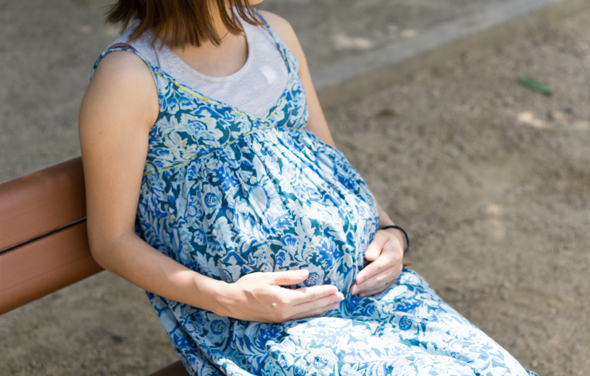Israeli Startup Nuvo Develops a Home Fetal and Maternal Monitor for High-Risk Pregnancies
According to data from the CDC, per 100,000 live births in the U.S., 17.2 women die as a direct result of their pregnancies; out of 1,000 births, six babies die either during the second half of the pregnancy or up to four weeks after emerging into the world
Pregnancy can be dangerous for both mother and child. Between 1987 and 2015, the number of pregnancy-related deaths in the U.S. has more than doubled from 7.2 deaths per 100,000 live births to 17.2 deaths per 100,000 live births respectively, according to the U.S. federal Centres for Disease Control and Prevention (CDC). The perinatal mortality rate in the U.S.has remained unchanged between 2012 and 2016, the year the CDC published its latest data on the topic, standing at six deaths either during the second half of the pregnancy or up to four weeks after birth per 1,000 births. In certain cases, the ability to regularly monitor the baby in the womb as well as its mother’s vitals is essential to the survival of them both. However, keeping expecting mothers hospitalised or rushing them to the doctor’s office for frequent checkups is not always realistic or viable.
Tel Aviv-based startup Nuvo Inc. set out to address the issue, helping pregnant women carry on with their daily routines, without forgoing necessary monitoring. Nuvo develops a belt-like device that offers pregnant women non-invasive fetal and maternal monitoring abilities from the comfort of the mother's home.
 Pregnant mother (illustration). Photo: Shutterstock
Pregnant mother (illustration). Photo: Shutterstock CEO Oren Oz founded the company in 2007 during his wife’s first pregnancy. Oz wanted to interact with his child through music, so he set out to develop a music-playing belt sending sounds into the womb. In 2013, Oz’s wife underwent a high-risk pregnancy and needed to continuously monitor the baby’s heartbeat and wellbeing, leading to a company shift to create a monitoring belt, Klein said.
According to Klein, Nuvo’s device is sold strictly to medical practitioners and offered to expecting mother on loan on a prescription base only, The patient receives information from the device directly to her phone and a more comprehensive report is sent to her physician. Nuvo’s business model is to charge insurers, per report issued. Klein estimates the use of Nuvo’s device would cost approximately $300 per pregnancy.
- Israel’s Baby-Tech Boom: 9 Startups for New Parents
- Health Monitoring Startup Hello Heart Raises $12 Million
- Medical Device Company HeraMED Partners With Device Maker Quasar
Nuvo is currently waiting on approval from the U.S. Food and Drug Administration (FDA), and expects to get the go-ahead by the end of 2019, Klein said. The company intends to apply for European regulatory approval in the near future, Klein said. Nuvo expects to start shipping its product in early 2020 and has already received letters of intent from one of Israel’s largest health maintenance organizations, he added.



